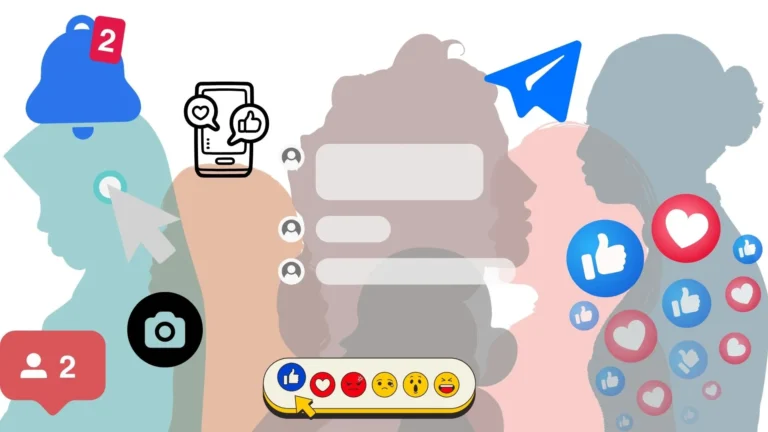*Marta’s story is a composite story, based on common survivor experiences
Nineteen-year-old Marta* crouched on top of the freight train, her ponytail whipping in the wind as the ground passed underneath her in a dizzying blur. Up ahead, the jungle approached, and she ducked to avoid low-hanging branches as the train entered the shady gloom of the rainforest.
She stayed well away from the edge of the train car. There was no railing preventing her from falling to the tracks below, and though she’d only been on the train for three days so far, she’d already seen a man fall. His scream had made her shudder. Marta did not want to be next.
The clacking of the freight train echoed through the jungle like the call of some huge mechanical bird.
La Bestia. The Beast.
That was what people called these trains—the ones that arced from the Mexican-Guatemalan border in the south, up through Mexico to the American border. It was a fitting name, Marta thought. The train itself was like a colossal beast, crawling through the jungle. And the people on the train could be as vicious as wild animals.
Marta nervously eyed the three men making their way down the train towards her. One of them made eye contact and leered at her. She looked away quickly, pretending not to see. Hoping they’d leave her alone.
Before Marta had left Honduras, her aunt had warned her about men on La Bestia. “Let them do whatever they want to you, or they’ll push you off the train,” Tía Belén had told her.
Marta had weighed her options carefully before leaving Honduras: she could stay in her hometown, working in a factory making clothes for 14 hours at a time, living in constant fear of the gang who had killed her brother. Or she could try to escape to the US, risking sexual assault, kidnapping, and death.
None of her options were good. But if she could get to the United States—get a job, live in a safe neighborhood—then maybe she’d be able to have a better future. Maybe that would make all this violence worth it. So, she’d chosen to make the risky journey, traveling through Honduras and Guatemala to Mexico. She’d chosen to get on La Bestia, knowing the risks that it would entail.
Still, she felt a sinking dread as the men approached her.
Sexual Violence Against Migrant Women
Marta represents the hundreds of thousands of women who emigrate from Mexico and Central America—especially Honduras, Guatemala, and El Salvador—every year.
These women migrate primarily for the hope of a better life for themselves or their families. Often, they are escaping gang violence, abusive relationships, or political persecution. In the words of one woman immigrating through Mexico, “We come after an objective, forced to leave our country, not because we want to, but because we are forced.”
Sometimes, women migrate to send money back to their children, who remain in the country of origin. As one woman who migrated from Mexico to the United States says, “I came here because I was a single mother with two children and I didn’t have too many chances—economical chances in Mexico.”
For some women, the United States is their final destination. For others, Northern Mexico promises the job opportunities they seek.
Either way, sexual violence is ubiquitous. As one study concluded, “Sexual violence is not a matter of chance or a risk for the migrating women; it is a fact that they must each confront.” Sexual violence against migrant women sometimes occurs on La Bestia, but it can also come at other points on the dangerous journey north.
Sexual violence against Latin American immigrant women is ubiquitous. One study concluded: “Sexual violence is not a matter of chance or a risk for the migrating women; it is a fact that they must each confront.” Share on XSometimes sexual violence comes from people who pose as “benefactors” to the migrants. These men offer aid to migrating women in exchange for sexually access to them at some point on their journey. Sometimes Mexican immigration officials sexually assault migrants. Other times, “coyotes”— people who smuggle immigrants across the Mexico-United States border—target women, taking advantage of their desperation to sexually abuse them.
Even migrant shelters, which offer sanctuary, food, and temporary accommodations to immigrants, can be a source of sexual terror. One transgender woman said:
Sometimes, in some shelters . . . I think they treat animals better than they treat people. They discriminate and don’t allow you to sleep in the women’s room, instead, they make you sleep with the men . . . In the men’s room some of the men touched me almost all night long. I wasn’t able to sleep, they wanted to grab me by force. It would be good that the shelter helped us instead of discriminate us and judge us by our flaws.
Organized Crime and Rape
One of the most feared aspects of the journey is organized crime. While often organized crime is one of the factors spurring women to leave their homes, gangs and cartels also control the routes north. And for migrant women, organized crime means rape. These are interview responses from three women in the process of migrating from Central America:
They rape us . . . most of us get raped, others are never found or killed, because the majority lose their life. Sometimes they try to rape us and the girls try to fight back, men get angry sometimes and take away their lives. I was beaten almost to death for trying to defend myself, I even had to be taken to forensic medicine.
Paola, 38 years old
We move up north and they abused me, they cut my hair, raped me, stole my phone . . . and they did this to my sister too . . . They stole our earrings, clothes and left us only in bra and panties . . . and we had to get clothes . . . they cut my sister’s hair . . . raped her and cut her hair, it was long and beautiful. She had it up to here [points out her lower back] and they left her bald, they raped her, she was bleeding, they broke everything . . . it was awful.
Mirna, 18 years old
They tried to rape me, they beat me, they cut me twice here, ten stitches on one cut . . . they kicked me in the eye as you can see I have drooping eye, eyelid and I’m losing sight on this eye.
Andrea, 51 years old
Rape is so ubiquitous that often women seek out birth control injections and pills before beginning their journey so that, at the very least, they won’t become pregnant (see here, here, and here).
How can we do better at helping Latin American immigrants who experience sexual exploitation?
Cristian Eduardo is a survivor leader and advocate for survivors of sexual exploitation who is himself an immigrant from Mexico. He gives the following advice to people and organizations who want to help immigrant survivors of sexual exploitation:
“Become educated on the population you’re going to serve.” He points out that many organizations targeted at helping immigrant communities are made up of English-speaking, white men, which can seem unapproachable or intimidating. Cristian Eduardo also points out that many organizations are hesitant to work with immigrants and the LGBTQ community because they fear that they’ll do harm. He emphasizes that everyone can help these populations, as long as they are willing to do their research and educate themselves.
Another piece of advice Cristian Eduardo gives to organizations is to be more neutral about religion. “In a lot of these Latin American countries, religion contributes to the feelings of shame experienced by sexual exploitation survivors, making them feel dirty,” Cristian Eduardo explains. “If you can be neutral about religion, that can make your organization seem more approachable to survivors of sexual exploitation.”
“Also, don’t push people to do things they aren’t ready to do, like engage with law enforcement or leave the sex trade. Instead, you can be there every step of the way, so that they can leave the life when they feel ready to.”
How can survivors heal from sexual exploitation?
Cristian Eduardo gives the following words of hope to immigrants who have been victimized by sexual exploitation:
“It is not easy to heal, but it is possible. I am a survivor of sex trafficking, but today I am going to college and studying engineering. One day you’ll remember your dreams and be able to work towards them again.
“For all the immigrants and non-English speakers, know that there are resources. You’re not alone. There are people who will believe you and help you and love you. Even if you don’t feel you deserve it, you do. Remember, no person can consent to their exploitation. It’s not your fault, it’s the fault of the people who exploited you.
“Healing really is possible. One day you’ll be able to smile again.”
Healing really is possible. One day, you'll be able to smile again. ~Cristian Eduardo, Survivor Share on X “It is not easy to heal, but it is possible. I am a survivor of sex trafficking, but today I am going to college and studying engineering. One day you’ll remember your dreams and be able to work towards them again." ~Cristian Eduardo Share on X¿Usted o alguien conocido ha sido afectado(a) por la violencia sexual?
(English follows)
¿Usted o alguien conocido ha sido afectado(a) por la violencia sexual?
¡Existe ayuda disponible! La Red Nacional contra la Violación, el Abuso y el Incesto (Rape, Abuse & Incest National Network, RAINN) ofrece recursos para los sobrevivientes de la violencia sexual y sus seres queridos. RAINN ofrece apoyo confidencial y gratuito las 24 horas al día, 7 días por semana para los sobrevivientes hispanohablantes de la violencia sexual por medio de la Línea de Ayuda Nacional Online de Asalto Sexual.
RAINN ofrece cuatro formas distintas para que los sobrevivientes del asalto sexual reciban apoyo en español:
- La Línea de Ayuda Nacional Online del Asalto Sexual
- Chat en línea
- Llame al 800.656.4673
- La Sala de Ayuda
- Contenido online en RAINN.org/es
- Proveedores locales de servicios para víctimas del asalto sexual en rainn.org
Aprende Mas:
- RAINN Tool Kit en español: Guía de divulgación de servicios a la comunidad para los servicios en español
- La Línea de Ayuda Nacional Online de Asalto Sexual de RAINN ahora está disponible en español
Have you or someone you know experienced sexual violence?
Help is available! We encourage you to seek support at RAINN (Rape, Abuse & Incest National Network). RAINN provides resources for victims of sexual violence and operates the National Sexual Assault Hotline, which offers confidential 24/7 support. RAINN also offers a hotline and resources specifically for Spanish speakers, detailed below:
- Spanish Online Hotline
- Tool that allows survivors to search by state to identify Spanish-language sexual assault service providers near them
- Full list of translated resources



